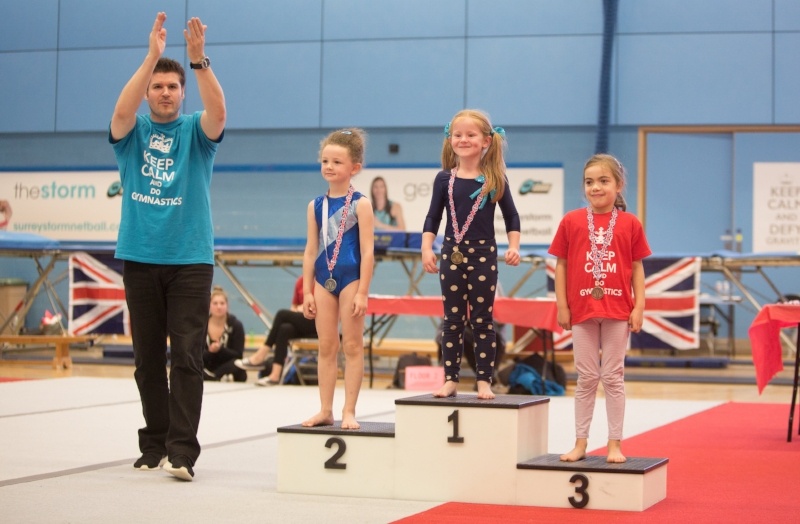As we are currently in a competition filled term with the Display Squad entering the Aerial Tumbling Club competition on Sunday 17th November and the Flair Championships Event for all club members on Saturday 30th November, I ask the question, “Are gymnastics competitions healthy for your child?”…
The celebration of an achievement is a tremendous thing, but the truth is that not every child will win a competition or be the best in their group or category. Many people today (and you might be one of them) think that competition is a bad thing that will dent a child’s confidence or take away their motivation. But is that really true? I don’t think so (and recent social science and psychology supports this). In fact I believe that some of the best achievements come not through winning but through losing, and using it as a vehicle for growth. Here I explain what I mean by that, and how you can help your child understand this sometimes difficult-to-grasp concept.
What is competition?
Put simply competition is striving to succeed (to win) and be the best at a given goal against all the odds, whatever obstacles life throws at us.
One of Flair gymnastics club’s core values is that: confidence is created through competition. Competition is known to develop vital life skills including confidence and self esteem. And it is from that confidence that your determination grows, and your desire to be the very best that you can be. What is really important to note though is that the element of competition that is really important is NOT the winning (or even, as the old saying would have us believe, the taking part), what’s important is the STRIVING – the working towards a goal. Although this goal can be a competition, it can also be a personal goal that involves becoming better at what you’re doing.
To find out more about our gymnastics clubs in Surrey why not come along for a Trial Class.
Or call the booking hotline – 01483 654440
Failure IS an Option
During a competitive activity we are competing against both other people and ourselves – any activity can be competitive if we aim to continually better ourselves at it and achieve new “personal bests”, whatever the activity. Attempting new things, or even striving to become better at something we can already do, is difficult, and there are times when we won’t do as well as we want – when we fail. But practice at failing can actually make it easier next time round – as Thomas Edison said when inventing the light bulb “I didn’t fail, I just found 1000 ways that didn’t work”. Although it can be crushing to see our child “fail” or not win, as parents we do our children a great favour by allowing them to be in situations where this happens. A qualification to this statement though is that we have to give them the tools to use these “failures” as learning experiences. So we need to allow them to talk it through, to ask themselves the questions of “What can I do different next time?” and “What did I learn from competing here?” We need to help them understand that next time they can use what they’ve learned from this time to move them forward. These are all skills that they’ll carry with them into adulthood.
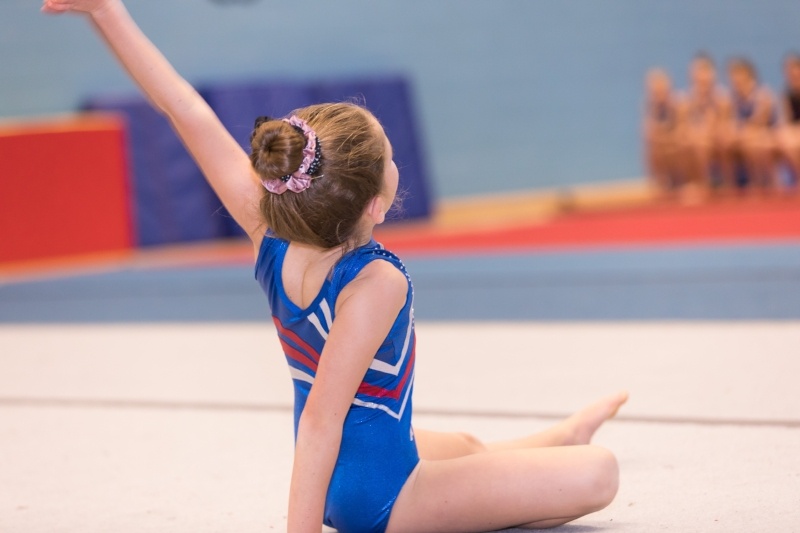 ACHIEVING PERSONAL BESTS
ACHIEVING PERSONAL BESTS
Failure must always be viewed as ‘feedback’, it can then be seen as a positive outcome. The difference between successful people and others is that they fail more times than anyone else – because they attempt things more! Successful people choose to embrace failure. Part of the staff training process at Flair is to insist that they attempt to fail, fail lots and fail hard. Because it is the only chance we ever have to learn and grow.
Wanting to be More, or Better
The urge to compete is built into our DNA (and after all, each one of us started off by virtue of a “winning” sperm beating the rest of the competition!). This competitive streak (whether it’s internal competition, with ourselves, or external) seems stronger in some people than in others, but it’s there in all of us.
Most changes that come about in society are as a result of being dissatisfied with things as they are, and wanting them to be better. The great “changers” of the world – the scientists, the entrepreneurs, the social reformers – have faced life head on and said “There is a better way” – and then gone on to find that way, taking on the challenges and the inevitable failures along the way. Your child may be a future Einstein or Steve Jobs, and by allowing them to face challenge and failure head on, you’re giving them a head start in life! The urge to change and strive for more can drive us into new and fun adventures and new relationships – with all the excitement and enjoyment that come with these changes.
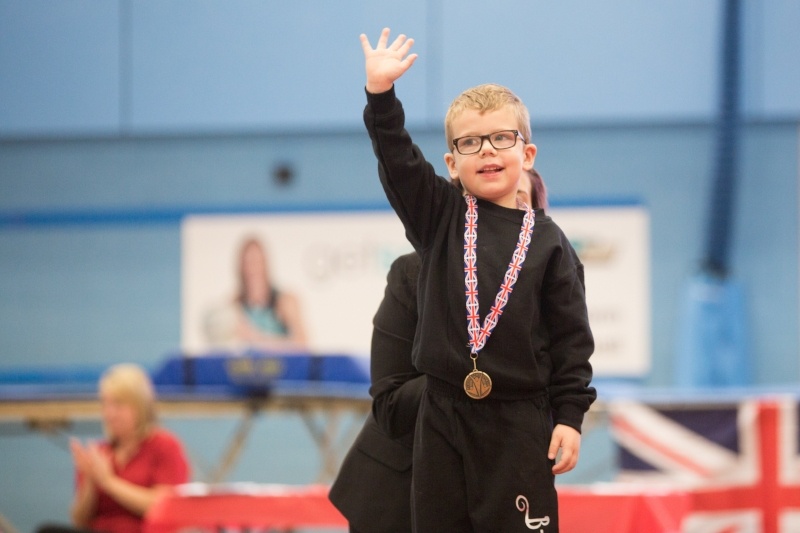 THE SWEET TASTE OF SUCCESS
THE SWEET TASTE OF SUCCESS
Eventually anyone who takes on a goal or challenge will win, or will achieve a goal or a personal best. These moments are SO much sweeter if they’ve been hard won! In a world where a common philosophy is that everyone’s a winner, and everything is “awesome”, those that have achieved REAL success know what it really feels like. Children aren’t stupid – they know when they’ve done well, and they feel the confidence that comes with that real success. With confidence we grow in emotional resilience so when things aren’t going well at some point in the future they have an inner ‘knowing’ that they’ve done well before and can do so again. True confidence is knowing that you can.
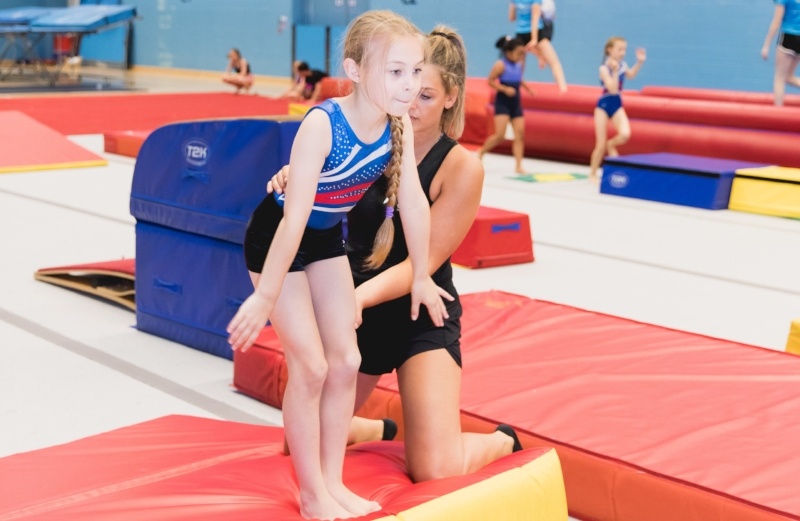 A GROWTH MINDSET
A GROWTH MINDSET
Being hungry for more and to be the very best that you can be is a healthy thing. I will go so far as to say that being ‘dissatisfied’ is healthy too… and as humans we are allowed to be dissatisfied and happy at the same time. That’s called ‘enjoying the ride’ the ride of life and embracing life’s journey. Many would never put ‘dissatisfaction’ in the same sentence as ‘happiness,’ but think about it for a moment, think about how far you have come in the past 10 years in your life journey and what it was that moved you onwards and upwards to bigger and better circumstances and think about the enjoyment you have had along the way.
Those that ‘think big’ will find positivity and growth even during the disappointing times, like when they don’t win an event or competition.
Being dissatisfied has caused the world to progress, it’s allowed the world to go from steam train to motor vehicle, to flying in jets across the world and having hot water, heating and lighting in our homes. We have companies formed by people and run by people who are working on commercial space travel, better computers, faster smartphones, creating amazing life experiences for us all to enjoy..
So, what does it mean to NOT win?
There was a study by psychologist and motivational expert Carol Dweck in Chicago, where a group of students had to pass a test and if they failed to pass the test, they got the grade ‘Not Yet.’ This gives you the understanding that you are on a learning curve, realising you are on a pathway to the future.
A test was carried by Carol Dweck where they put challenges in front of groups of 10yr old children where those challenges were slightly beyond their level of ability.
Some of the children recognised this and said “I love a challenge!” They understood that their abilities could be developed. They had a growth mindset.
Other children reacted with a “It’s tragic”!
They had a fixed mindset. In their mind their intelligence had been up for judgment and they ‘FAILED’ instead of realising the ‘NOT YET’ .. they were gripped in the tyranny of NOW!
In one study they said they would probably cheat the next time and some said they would look for someone who did worse than they did so they could feel really good about themselves…. They RUN from difficulty.
Fixed mindset students who RUN, don’t engage in the activity and have a lower brain activity when faced with challenges, as opposed to those children with a growth mindset where their brain activity is on fire as they engage deeply, process the errors. They learn from their mistakes and then correct it.
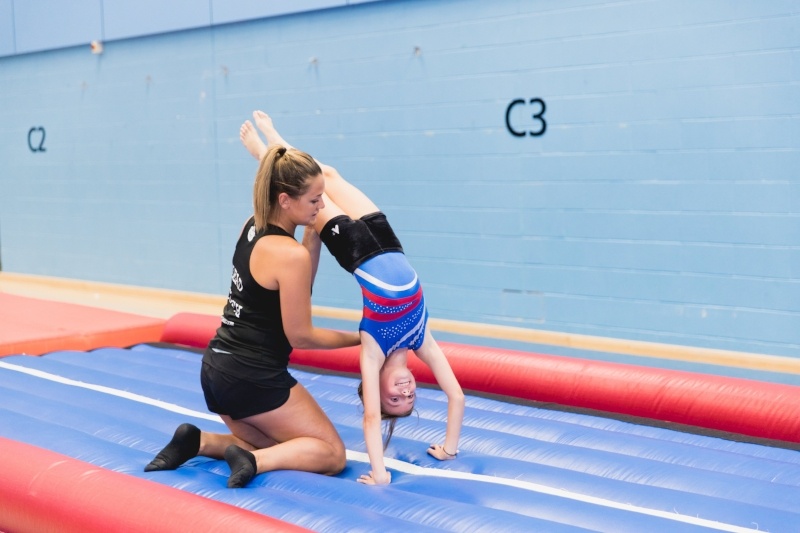 “I LOVE A CHALLENGE!”
“I LOVE A CHALLENGE!”
With personal awareness we are able to spot certain ways of thinking that we have and change them, unlearning old habits and establishing new ones. We can teach our children to do the same thing too. A child that doesn’t have a growth mindset can be encouraged and empowered into new ways of thinking, so that they see new possibilities. This is part of your job as a parent, and our job as coaches and facilitators. Can you grasp the true value of losing?
At every event we run at Flair where a ‘competition’ is involved, we always have a handful of parents inform us that we have shattered their child’s confidence because they have not got a medal or won a trophy. I’m not sure those parents have really grasped the true value of losing or failing, which I have described here for you. I realise it can be a painful experience to see your child not get up and be presented an award in front of their peers, the feelings of rejection, anger and upset are not uncommon.
But I’m happy to say that the positive comments and stories of how members have grown through the experience of competition far outweigh any of the ‘my child was left out or didn’t win’ comments. On a further positive note, I have had parents complain to me in the past about their child’s competition experience (they didn’t win/get a medal), only for them to then come into the gym a term later to let us know that their child’s growth has been huge and they think that this ‘may’ be directly linked to them not winning and being determined to improve (‘growth mindset’) and get on that podium next time round. This to me is a win-win as both the parent and the child have grasped the WHY and learnt, unlearnt and relearnt.
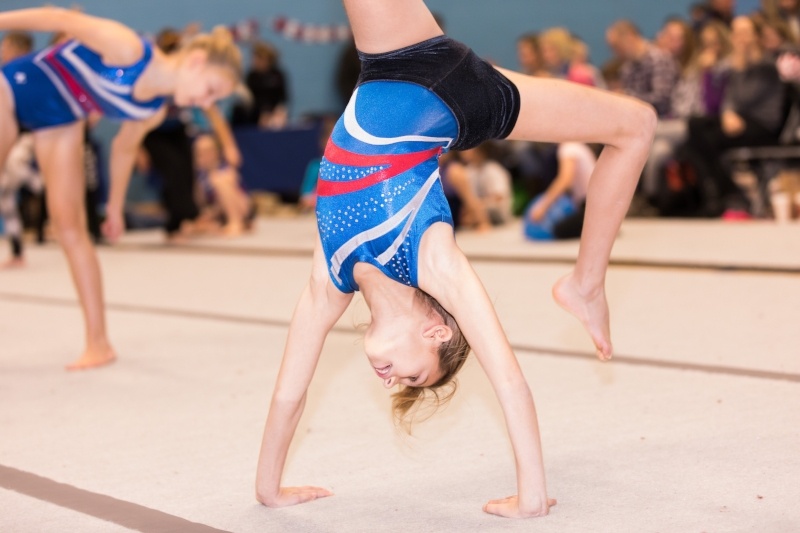 PRACTICE MAKES PERMANENT
PRACTICE MAKES PERMANENT
On the other side of the coin, though, I’ve had parents instantly remove their child (who was previously enjoying classes) from the club after a competition because they (the parents) were disturbed by the fact that by not winning their child’s confidence hadn’t been boosted – as if that was the only reason to compete. But we learn, grow and gain confidence through a process and not through a one-off event, and in the same way a child doesn’t, with the right support, lose confidence through a one-off event. These parents are in danger of teaching their child that failure is a reason to quit, to give up, to not give it another go. In fact, failure is ‘THE’ reason to continue: to strive to do better, to learn, adapt and go again until you find a way to succeed,
My Story of Success through Failure
I was fortunate as a child to have entered into many gymnastics competitions (never reaching the levels of today competitors or the heights of Olympians such has Max Whitlock) and I learnt how to fail and how to learn from failure. I was never on the podium until I made a breakthrough at the age of 10 coming 3rd in my first regional finals where I won a place on the team to compete at the national finals representing the South East of England. I was ecstatic to win a medal; the win meant more than anything to me and I didn’t even come first! I then won the title (gold medal) the following year and for the next 7 years. BUT it didn’t happen overnight and real success never does.
Failure Equals Success
The number one question I would ask you to ask your child if they get upset or angry at losing or not winning a prize/competition is “Have you enjoyed the process up until this minor disappointment?” Also ask yourself: does your child enjoy their classes, do they have fun doing the training and love learning? If they do, be an awesome parent and step back and allow them to fail, or to even risk that they might fail. This is the only place where they can truly grow. Allow yourself to show your child the bigger picture: that in order to WIN, desire for success must be greater than fear of failure – and ultimately in life the only person you are in competition with is YOURSELF. By always striving to be the very best possible version of yourself, the results include the wonderful combination of ‘progress’, ‘happiness’ and ‘confidence’ – which makes you a winner!
If you would like to find out more about our gymnastics clubs in Surrey why not come along for a Trial Class.
We’d love to meet you!
P.S. Secure your child’s Trial Class by calling the hotline – 01483 654440
